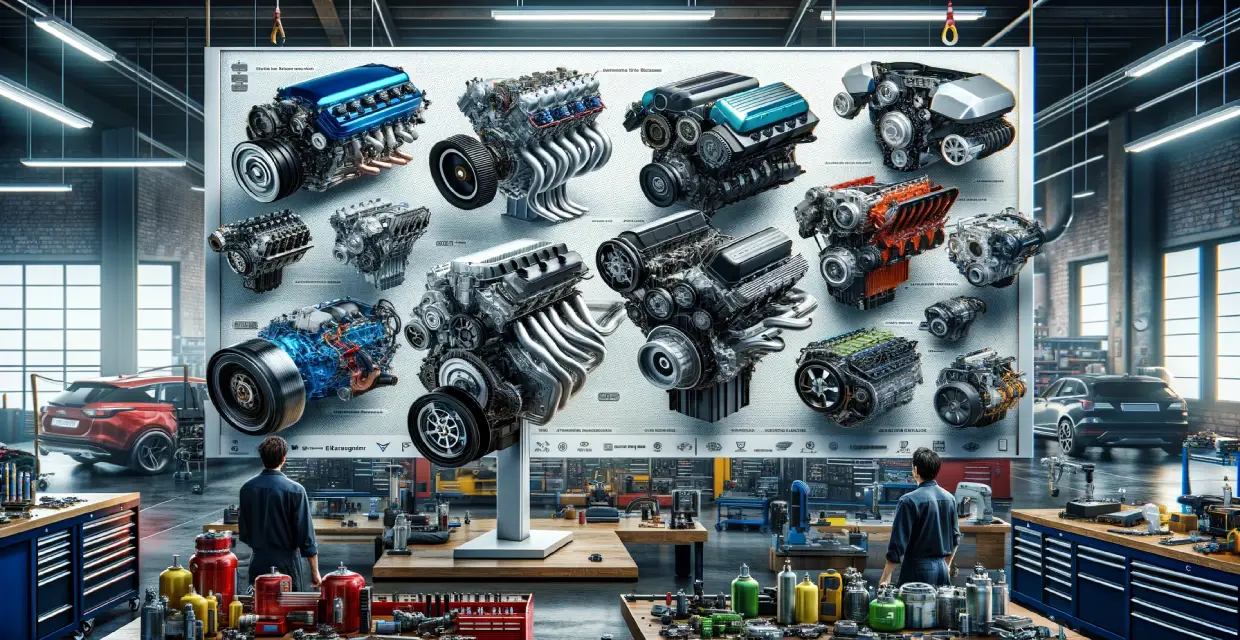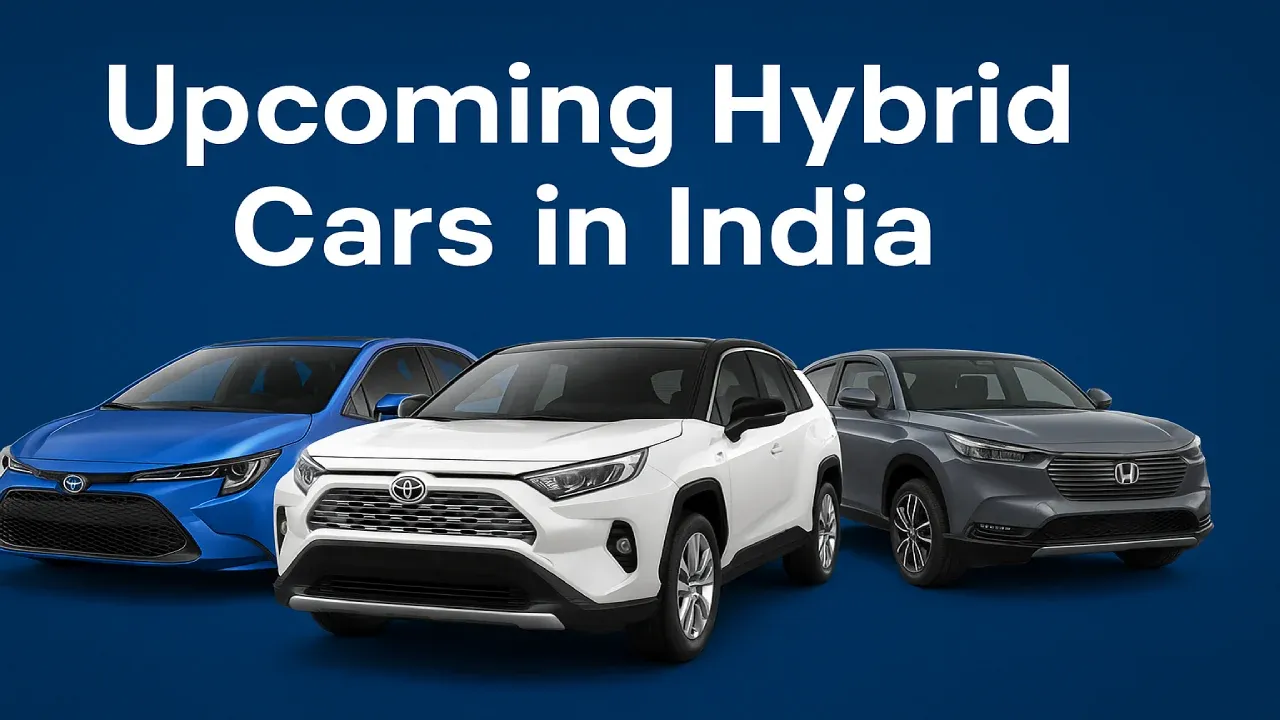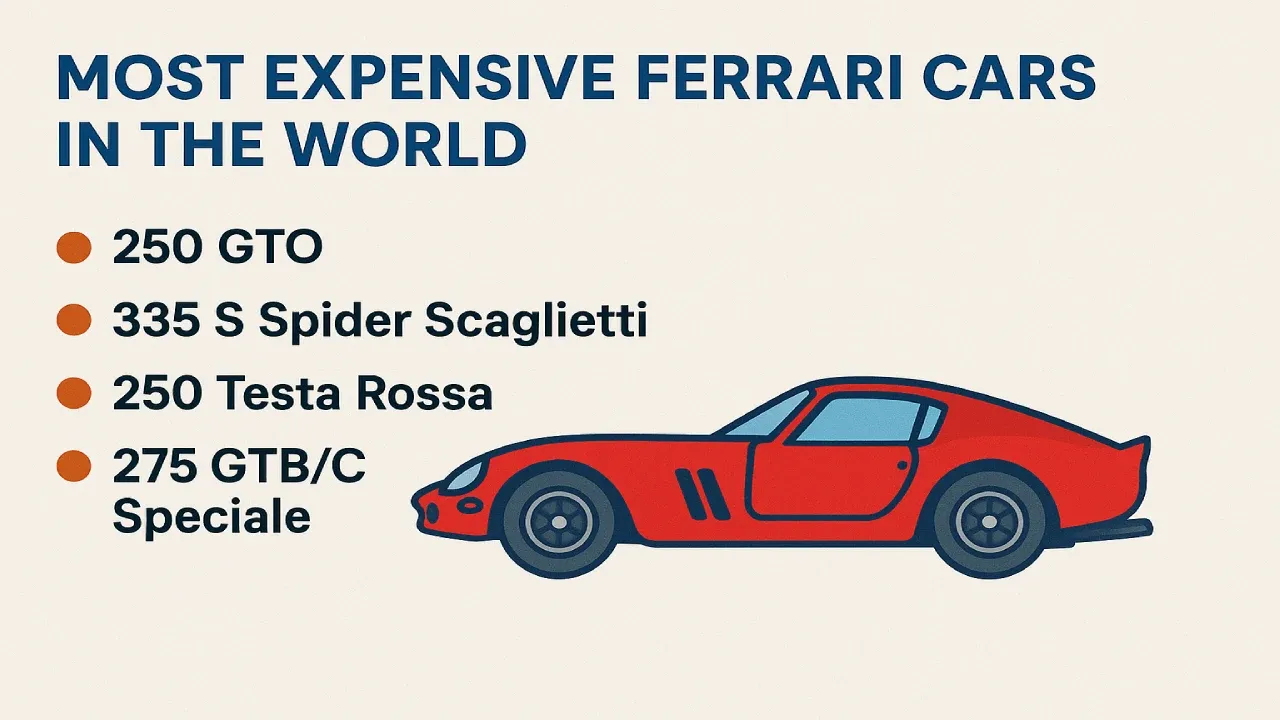Gearheads , car enthusiasts and countrymen! Lend me your ears (or eyes and brains) as we buckle up for a ride into the diverse world of car engines! In this article we dive deep into the types of engines under your motor vehicle's hood. While most of the car engines are internal combustion engines, depending on the fuel type such as diesel engine or the gasoline engine, we are interested in the other types of engines powering these incredible machines.
Types of Engines
Engines work on the principles of exhaust and pistons. Broadly, automotive engines can be categorised on the basis of the engine layouts, cylinder configurations and combustion styles. Here is a brief about each category and the further different types of engines:
1. Engine Layouts
Car engines can be classified on the basis of how the cylinders and pistons are arranged inside. The layouts are responsible for vibrations and power produced by the engine.
- Straight Engine: Picture a lineup of cylinders standing tall in a neat row. These straight engines offer simplicity and are typically fuel-efficient. Car manufacturers are using these in luxury sedans such as BMW or Mercedes series, due to their easy installation process.
Also Read:- CNG vs Petrol Car
Inline Engine: Similar to the straight layout, this configuration packs cylinders in a line, but they're placed horizontally. These are more popular among hatchbacks due to compact build and inexpensive manufacturing. They strike a balance between performance and space efficiency.
Flat Engine: Flat engines are not so much preferred by modern car manufacturers. Also known as a boxer engine, these have horizontally opposed cylinders punching away from each other. They provide a lower center of gravity, ensuring better stability and handling.
V Engine: Another common type of engine configuration which can be seen in vehicles which produce more power. Imagine cylinders arranged in two rows, forming a "V" shape when the pistons move. These engines offer a blend of performance and compactness, commonly found in sports cars and luxury vehicles.
Also Read:- Types of Car Chassis
2. Cylinder Configurations
The number of cylinders also play an important role as far as car engines are concerned. They are directly proportional to the power and the luxury the car can offer. Further odd configurations are known for the sound they produce.
Twin-Cylinder: Twin-Cylinder engines work with two cylinders to provide enough power for smaller cars and motorcycles. They're known for their compact size and fuel efficiency.
Three-Cylinder: Three-cylinder engines are known for the sound they produce. These smaller engines are unique due to the vibration and odd firing sequence. These are popular engines used in the hatchback and compact SUV segment.
Four-Cylinder: Four-Cylinder Engines aim for a balanced performance and fuel economy. These car engines work in an inline layout. These engines are used in cars like Honda City, Maruti Suzuki Swift etc.
Five-Cylinder: A not so common car engine, these engines have vibrations because of the odd number of cylinders. These engines emit more carbon due to their design.
Six-Cylinder: Offering a boost in power, these engines are usually found in larger vehicles, providing a smoother performance with more cylinders in play. These engines can use a straight (perpendicular to the car orientation) or a V engine cylinder configuration.
Also Read:- How to Drive a Car in Heavy Fog
Eight/Ten/Twelve or More Cylinder: The more the number of cylinders, the nearer your car is to the supercar category. While these are reserved for high-performance cars and luxury models, car manufacturers like Ferrari and Bugatti prefer these powerhouses. These engines are designed to offer exceptional performance and a thrilling ride.
3. Combustion
Since car engines are internal combustion engines, the type of combustion engine viz-a-viz forced or natural determines the engine type. With advancements in technology, these are concerned about lesser emissions as well.
Naturally Aspirated: Engines that draw air directly into the combustion chamber, commonly seen in many standard vehicles. It is a type of internal combustion engine. The engine produces less power compared to the other engines in this category.
Turbocharged: Utilising forced induction, these engines pack a punch with increased power output, offering a zestier performance. While these engines utilise waste exhaust gases entering through the inlet port. Additional car component known as turbocharger is used to produce a forced induction.
CRDI (Common Rail Direct Injection): These engines deliver fuel directly to each cylinder, optimising fuel efficiency and performance. Car makers utilise the engine component called Electronic Control Unit (ECU) which helps regulate engine's load along with the speed. Most of the diesel engines work on this type.
Also Read:- Upcoming Diesel Cars
MPFI (Multi-Point Fuel Injection): Featuring multiple fuel injectors, these engines ensure precise fuel delivery, enhancing performance and fuel economy. MDFI engine is one used in petrol operated cars. The engine creates fewer carbon emissions due to their precise fuel delivery.
Conclusion
Technology has evolved from steam engines (external combustion engines) to electric engines. There is still an innovation going on when it comes to hybrid engines while other types of fuel engines are being explored as well.
While we haven't covered stirling engines, w16 engines, w engines and rotary engines (these engines are rarely used nowadays), there is no doubt that it is the most important part of a car. Most of the above mentioned are used as car engines in India. Engine protection should be one's top priority while dealing with a vehicle on a daily basis.
If you are looking for a car insurance policy, check out the Park+ to solve all your car related solutions.




